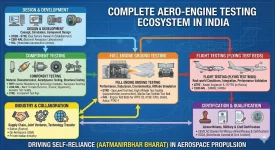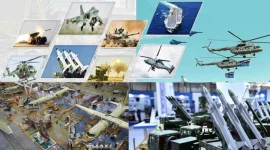- Views: 2K
- Replies: 7
In a significant move to enhance India's air defence and promote indigenous manufacturing, the Defence Research and Development Organisation (DRDO) has invited private Indian companies to participate in the development of a Mobile Launcher System for its advanced long-range interceptor missiles.
The tender is specifically for the M2 and M3 missiles, which are key components of the ambitious 'Project Kusha'.
This initiative is a crucial step under the 'Atmanirbhar Bharat' policy, aiming to build a self-reliant and robust domestic defence industrial base.
The involvement of the private sector is expected to accelerate the development and production of this critical military hardware.
Project Kusha, also known as the Extended Range Air Defence System (ERADS), is India’s flagship programme to create a homegrown long-range surface-to-air missile (LRSAM) system.
It is designed to establish a multi-layered air defence shield, capable of neutralising a wide array of aerial threats far from the country's borders.
The system's mobility is vital for operational success, as truck-based launchers provide the flexibility for rapid deployment to strategic locations and increase the system's survivability against enemy attacks.
The project features a three-tiered interceptor missile system:
Once deployed, Project Kusha will provide the Indian Air Force (IAF) and Indian Navy with a formidable defence against sophisticated threats such as stealth fighter jets, drones, cruise missiles, and even high-speed anti-ship ballistic missiles.
The system is engineered for a high single-shot kill probability of over 80%.
The Cabinet Committee on Security (CCS) approved Project Kusha in May 2022. This was followed by the Ministry of Defence granting an Acceptance of Necessity (AoN) in September 2023 for the procurement of five squadrons for the IAF, at an estimated cost of ₹21,700 crore (approximately US$2.6 billion).
The development is being spearheaded by DRDO's premier laboratories, including the Defence Research and Development Laboratory (DRDL) and Research Centre Imarat (RCI), with Bharat Electronics Limited (BEL) serving as a primary development partner.
According to the project timeline, the first trials for the M1 interceptor are anticipated in September 2025, with tests for the more advanced M2 and M3 variants scheduled for 2026 and 2027, respectively.
The complete system is expected to be inducted and operational between 2028 and 2030, marking a major milestone in India's journey toward strategic defence independence.
The tender is specifically for the M2 and M3 missiles, which are key components of the ambitious 'Project Kusha'.
This initiative is a crucial step under the 'Atmanirbhar Bharat' policy, aiming to build a self-reliant and robust domestic defence industrial base.
The involvement of the private sector is expected to accelerate the development and production of this critical military hardware.
Project Kusha, also known as the Extended Range Air Defence System (ERADS), is India’s flagship programme to create a homegrown long-range surface-to-air missile (LRSAM) system.
It is designed to establish a multi-layered air defence shield, capable of neutralising a wide array of aerial threats far from the country's borders.
The system's mobility is vital for operational success, as truck-based launchers provide the flexibility for rapid deployment to strategic locations and increase the system's survivability against enemy attacks.
The project features a three-tiered interceptor missile system:
- M1: With a range of 150 km.
- M2: Capable of striking targets up to 250 km away.
- M3: The longest-range variant, designed to intercept threats at a distance of 350 to 400 km.
Once deployed, Project Kusha will provide the Indian Air Force (IAF) and Indian Navy with a formidable defence against sophisticated threats such as stealth fighter jets, drones, cruise missiles, and even high-speed anti-ship ballistic missiles.
The system is engineered for a high single-shot kill probability of over 80%.
The Cabinet Committee on Security (CCS) approved Project Kusha in May 2022. This was followed by the Ministry of Defence granting an Acceptance of Necessity (AoN) in September 2023 for the procurement of five squadrons for the IAF, at an estimated cost of ₹21,700 crore (approximately US$2.6 billion).
The development is being spearheaded by DRDO's premier laboratories, including the Defence Research and Development Laboratory (DRDL) and Research Centre Imarat (RCI), with Bharat Electronics Limited (BEL) serving as a primary development partner.
According to the project timeline, the first trials for the M1 interceptor are anticipated in September 2025, with tests for the more advanced M2 and M3 variants scheduled for 2026 and 2027, respectively.
The complete system is expected to be inducted and operational between 2028 and 2030, marking a major milestone in India's journey toward strategic defence independence.




